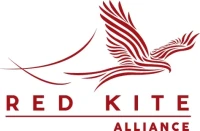Formative Assessment is used by teachers to evaluate pupils’ knowledge and understanding on a day-to-day basis and tailor/adapt teaching accordingly. It should be an integral, and continuous part of the learning process; not ‘bolted-on’ at the end of a unit. This means that:
- Formative assessment can take place in a variety of forms during day-to-day teaching and include low stakes testing that allows both students and teachers to diagnose learning. Examples of low stakes testing includes, quizzes, MCQs (multiple choice questions), self and peer assessment, teacher verbal questioning etc. These activities should be constructed to enable the identification of knowledge gaps and misconceptions so that a teacher can be responsive and adapt teaching as necessary.
- Assessment tasks are expected to be planned into the curriculum as part of medium-term planning (schemes of learning) and short-term-planning (day to day lessons), be linked to learning objectives and require teachers to think ahead about what would indicate understanding (e.g. by planning hinge questions to pinpoint knowledge gaps).
- Students will be assessed periodically on the knowledge and skills, through key pieces of assessment identified by subject specialists in their curriculum maps. Students should receive regular detailed written feedback on these key pieces of assessment that moves learning forward. (See feedback policy).
- Students will receive a threshold (KS3) or a grade (KS4/5) along with a percentage (where applicable) on these pieces of work. Evidence of achievement/attainment emerges from the tracking of these key pieces of assessment.
- Students should be involved in the assessment process. Students should be aware of the overall context in which a piece of work is being studied and the success criteria for judging achievements should be made clear to them.
- Teachers create structured opportunities for DIRT: Directed Improvement and Reflection Time during a sequence of lessons for students to improve their work and deepen their knowledge, as part of an ongoing feedback cycle.
- Students will be expected to respond to feedback given by their teachers on key pieces of assessment as part of DIRT. This may be by way of green pen work, editing and improving work, responding to further questions or any other way signposted by their teacher. (See feedback policy)
- Students are also encouraged to self-assess and peer-assess work, creating a culture of self-evaluation and public critique. This enables them to become self-regulated learners that are aware of their strengths and weakness and can motivate themselves to improve their learning. Self and peer assessment also develops their metacognitive knowledge of how they learn, which has been shown to improve pupil outcomes.








